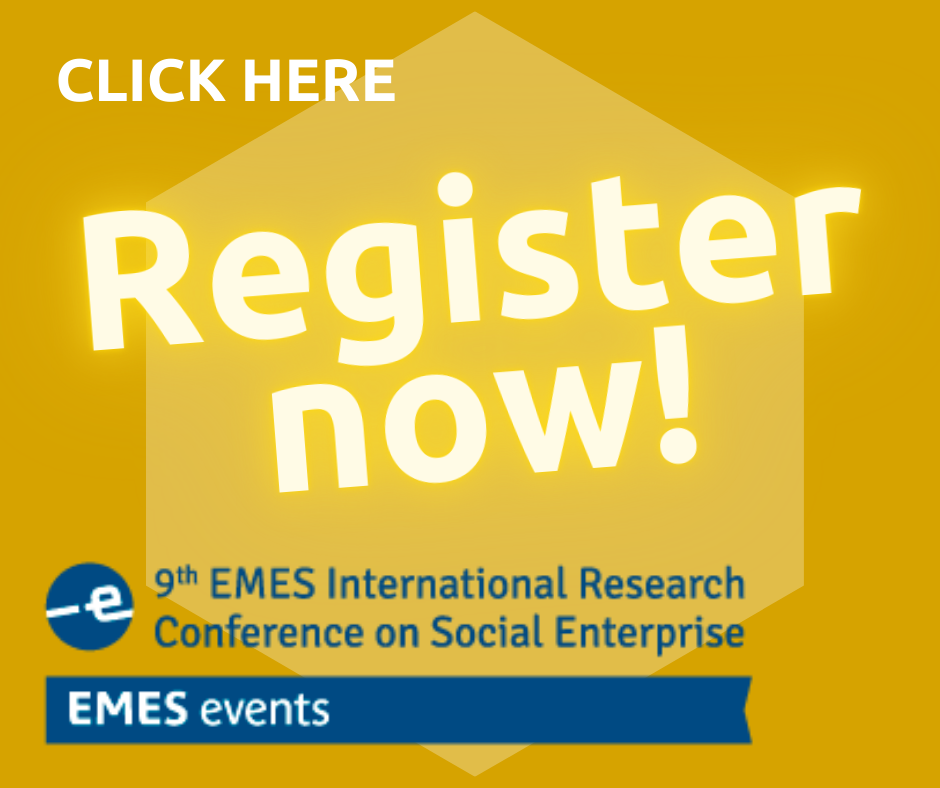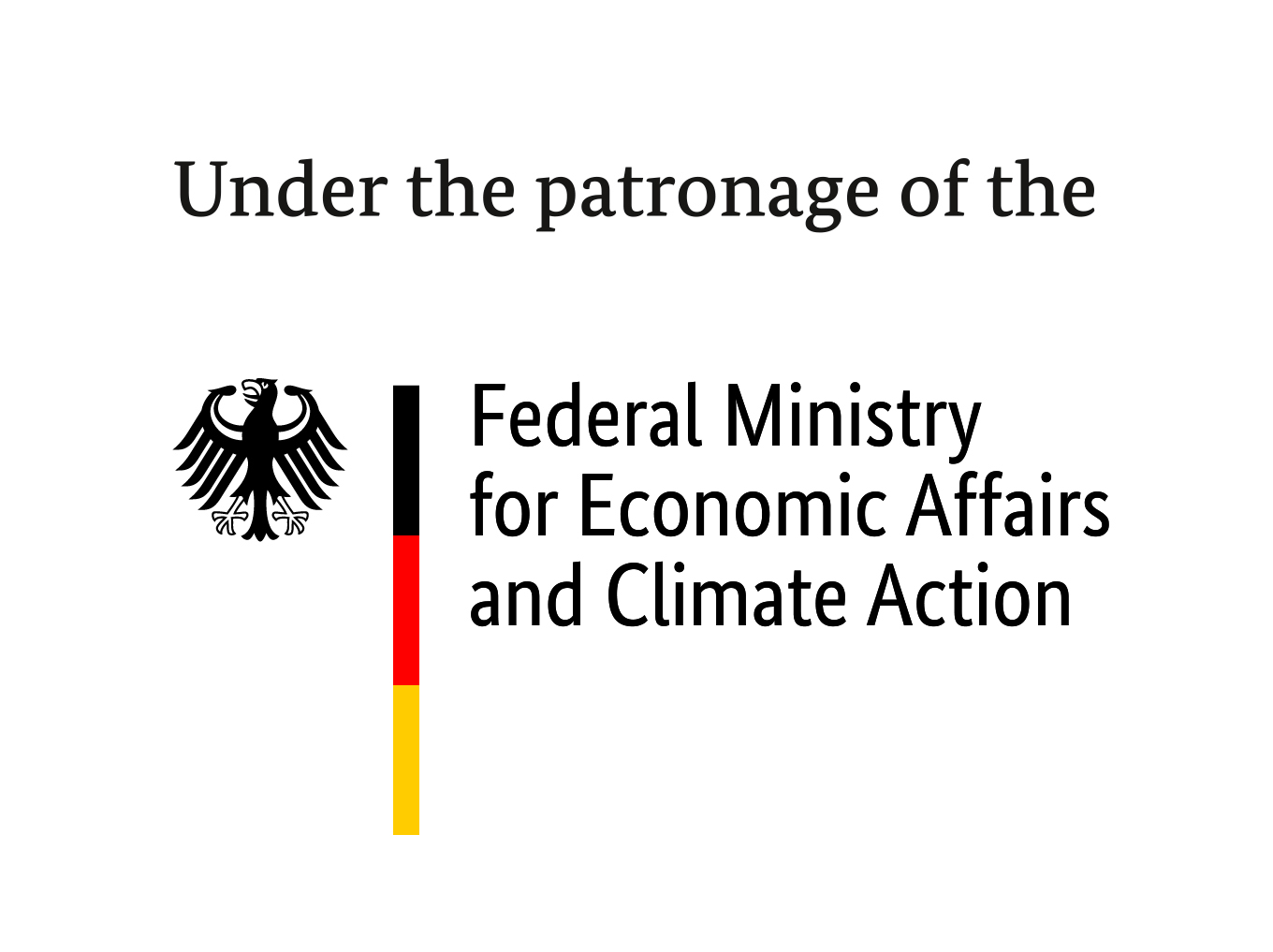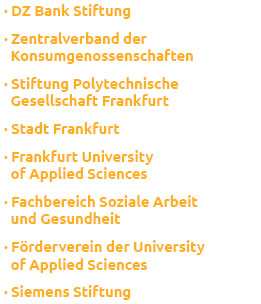Conference Rationale
In a world increasingly challenged by health and environmental disasters, economic crises and socio-political conflicts resilience no longer means the capacity to go back to the equilibrium. Transformative resilience implies the redesign of socio-ecological systems, including the relationship between human beings and nature so that new forms of sustainable development are nurtured.
With their social, political, economic and cultural innovations, expectations are that social enterprises increasingly also play a role in fostering transformative resilience. This challenges social enterprise research on three levels: firstly, their organizational resilience in crises contexts; secondly, the synergy between organizational and social enterprise ecosystems resilience; thirdly, their contribution to transformative and alternative socio-ecological resilience.
Social enterprises naturally cross various types of borders, in terms of agents (public, business, cooperative, associative), resources (drawing them from the market, public procurement and grants, membership, volunteering, etc.) and activity fields. Their social mission usually marks the activity field in which they operate, ranging from more access to social services and health as well as work integration to social and ecological transition, social finance and culture, circular economy, platform cooperativism, eco-entrepreneurship, urban or rural regeneration, innovative housing patterns, renewable energy, and food supply.
The growing social and environmental challenges facing contemporary societies globally demand more than ever that social enterprises, including some cooperatives and voluntary organizations, put their sometimes divergent, yet always hallmark like principles and values at the service of creating sustainable impact for their stakeholders, as well as the communities, regions, eco- and biotopes surrounding them.
In many cases, social enterprises are the result of, or are connected to, an ecological, transition or civil society movement seeking new political, social or economic models to face societal and indeed global challenges. Especially where their entrepreneurial behaviour is linked with new relational practices they attract attention from traditional cooperatives, businesses, charities, civil society initiatives and politicians. The characteristics of the exchanges, commercial or otherwise, in which they are involved, cause institutional transformations at community, meso- and even macro-level, and influence the local and regional environments in which they are embedded.
Some of the questions related to the conference topic include: What are the distinctive characteristics of SE that account for their capacity to foster resilience? How do these specificities relate to legal form, business model, governance systems and all other facets already being looked at? What proof is there of the transformative force of such characteristics? What does this imply for addressing societal challenges aiding systems changes and transitions? What are the internal challenges and external threats to put social innovations into practice in rapidly changing environments? What new patterns of cooperation with their environment do or might arise? When under pressure, do social enterprises and cooperatives depart from their original motives, governance and organizational culture, and if so, what are the consequences? Can social enterprises influence other organizations to engage in more responsible behaviours in social and environmental terms? What are their wider economic, social, societal, and environmental implications?
We invite scholars to explore synergies between different disciplines within social enterprise and cooperative research and catalyse critical debates between different research communities (e.g., those relating to the ‘SE field’ which includes social enterprise, social entrepreneurship, social and solidarity economy, social innovation, public policy and social movements) on the state of the art in research and practice.
Taking a worldwide and interdisciplinary research perspective, this conference offers a unique opportunity to diverse scholarly communities to discuss the challenges faced by social enterprises and cooperatives as well as their potential to assist transformative processes and resilience in local, regional and national societies and economies. The conference will bring together research communities from all over the world using different empirical approaches as well as a variety of theoretical lenses and perspectives. These include, but are not limited to, social innovation, cooperative economics, social entrepreneurship, voluntary and solidarity action, hybrid organizing, institutional logics, the commons, transitions perspectives, and critical management. Moreover, the conference will contribute to the current momentum around the SE field as illustrated by the ongoing commitment and formal resolutions launched or under preparation from the ILO, the UN, the OECD, the European Commission and the European Parliament as well as various national governments with a view to enriching political debates around ways to strengthen SE ecosystems worldwide.
Thematic Lines
To encourage academic debate across fields, disciplines and geographic boundaries, the conference will be structured along fourteen main thematic lines to build up an international corpus of theoretical and empirical knowledge, pluralistic in disciplines and methodologies, indicating the role of “SE” concepts and practice in tomorrow’s world.
We would particularly encourage authors to submit proposals that address the contributions of social enterprises and cooperatives (hereafter unanimously referred to as social enterprises) towards building resilient economies and societies, that cannot only withstand external threats and crises, but improve the agility of local, regional and national systems so as to deliver prosperity and sustainability across all thirteen thematic lines:
Line 1: Theoretical and methodological foundations of social enterprises and models of social enterprise worldwide
Convenors: Marthe Nyssens (Belgium), Giulio Ecchia (Italy), Adalbert Evers (Germany), Sonja Novkovic (Canada)
Social enterprises and social entrepreneurship are multi-faceted concepts, which researchers have been addressing through a variety of lenses, theoretical and methodological foundations, and focal points. Research has focused on the organizational form, such as cooperatives with more or less commercial objectives, non-profit enterprises, or hybrid ventures. Research has further explored the intersections between entrepreneurship and social innovation, the role of the social entrepreneur or the dual mission. In this thematic line, we will further the complementarity and controversy of those diverse theoretical foundations and methodological approaches, the potential of multi-level analysis, transformative perspectives as well as the links with the diversity of the SE models to be observed across many fields and geographical areas.
Line 2: Financing social enterprises
Convenors: Gabriele Moos (Germany), Elizabeth Searing (USA), Wolfgang Spiess-Knafl (Germany)
In this thematic line, we explore the various challenges and opportunities related to the financing of social enterprises and cooperatives. What is the role of innovative financial mechanisms? Can crowdfunding or crowdlending become the new mainstream funding? What can we learn from small and medium enterprises? Does scale matter for appropriate financing? What role does the type of funder play? How do different funding sources complement each other? How do funding types and social/cooperative business model, organizational development stage, and legal form correlate? What promising financing models can social enterprises/cooperatives aiming for resilience and transformation deploy?
Line 3: Social enterprises and cooperatives for democracy and peace
Convenors: Swati Banerjee (India), Christiane Saure (Germany), Fernanda Wanderley (Bolivia)
Whether peaceful regional or local development, employee-management, avoiding or compensating for environmental traumata, social enterprise type organizations are gaining recognition in many countries. Through democratic processes involving members, volunteers and engaged employees they potentially contribute to solutions not likely if (competitive) compensation was due. In this thematic line, we seek to understand how SEs can stimulate member, volunteer and employee engagement. We are interested in the varieties of instruments SEs develop in order to become institutions for collective action, in which resources, relational and membership aspects, and the institutional framework are balanced.
Line 4: Social impact and sustainable development effects
Convenors: Alex Bignotti (South Africa), Marek Ćwiklicki (Poland), Francesca Petrella (France), Susanne Koch (Germany)
Social enterprises, cooperatives and other social economy organizations typically aim to have a social impact on a specific purpose, group of people, or local or regional area. As such, they are sometimes criticized for creating insiders and outsiders, even limiting the scope for big transformations. A different line of literature suggests the existence of spill-over effects to multiple purposes, groups of people, and regions. This thematic line critically examines tools and concepts for multi-level evaluation and analysis. It also asks to what extent and how social and economic spill-over effects can be identified. The discussion within this thematic line is strengthened by the “Social Impact and Social Enterprise” EMES Affinity Group.
Line 5: Social enterprises and innovation in ecological and social transition
Convenors: Sílvia Ferreira (Portugal), Luiz Inacio Gaiger (Brazil), Christian Lautermann (Germany), Dietmar Rößl (Austria)
Many Social enterprise type organizations are seen to be a hub of innovation, whether it is product innovation or business model innovation. Their innovative spirit frequently seems to be at the heart of their identity. In this thematic line, we explore what types of innovations SEs stimulate? How do such innovations contribute to organizational resilience and sector transformation? What is known about their influence on the resilience of the their natural, human or institutional surroundings? What role can scaling out or scaling down have for transitory effects? What is necessary for their innovative potential to make for wider change?
Line 6: From transformation to transition
Convenors: Philippe Eynaud (France), Jean-Louis Laville (France), Margie Mendell (Canada)
The challenge of the early XXIst century is to formulate a new conception of transformation aimed at integrating the movements of an ecological transition and egalitarian solidarity. Without such integration, transformation may once again lead to a reinforced market society or to statism and passive citizens. The challenge is to pave the way towards a society equipped to enjoy the innovative and collective capacity of a citizenry engaged in transitioning toward new social and environmental paradigms based on solidarity and epistemological justice. To do so Polanyi’s contributions are essential. We face indeed the necessity of an eco-social transition combining protection, reciprocity, redistribution and emancipation. This new mix must be invented to reach ecological preservation as well as social justice within a substantive economy: is it a new great transformation? How does it emerge in different local, regional situations? Is it impossible in the new capitalism or is it reframing a newly regulated capitalism?
Line 7: Institutional and legal diversity of social enterprises
Convenors: Anna Ciepielewska-Kowalik (Poland), Richard Lang (Austria), Mary O’Shaughnessy (Ireland), Kim Shinyang (South Korea)
In recent years, the variety of SE organizational types and legal forms (from associative to cooperative, from for-profit to non-profit) expanded into a rising number of new hybrid legal entities. Institutional diversity grew further by new partnerships emerging. This thematic line seeks contributions linking legal and institutional frameworks to aspects such as organizational development, governance, life cycles, funding, resources, and stakeholder management. It asks what these developments mean in relation to established social enterprise ontologies and asks for effects on the multiple missions. And it explores the growing diversity in regard to organizational agility and resilience.
Line 8: New interaction between for profit enterprises or public entities and social enterprises
Convenors: Taco Brandsen (The Netherlands), Bernard Enjolras (Norway), Michael Roy (Scotland, UK), Kathrin Schneiders (Germany)
Many pressing social problems around the globe are so deep-rooted and widespread that neither governments nor traditional non-profit organizations can solve them by themselves. Social enterprises seem a way to combine business concepts with social goals, but often need to cooperate with public or for profit-firms to do so. How do they partner up with commercial or public partners and how do they cope with Corporate Citizen-Initiatives? What novelties or trends can be observed? Where does cooperation become critical in so far as social enterprise organizations are in danger of counteracting social consensus on the role of state and market?
Line 9: Social enterprises and the digital age
Convenors: Millán Díaz (Spain), Benjamin Huybrechts (France), Simone Poledrini (Italy), Barbara Klein (Germany)
The ability of information technologies to facilitate peer-to-peer interactions has gained much attention from researchers on social enterprises. On the one hand, there is substantial interest in the social and ecological impact of new practices like social media or the sharing economy. On the other hand, more critical approaches to digital economies suggest “fair” alternatives to the dominance of Big Tech such as social enterprises like Fairphone or platform cooperatives like Fairbnb. This thematic line is open to submissions from either of these perspectives and welcomes debate over the future of digital economies.
Line 10: The role of social enterprises in crisis shaken-welfare
Convenors: Ellen Bennet (United Kingdom), Linda Lundgaard Andersen (Denmark), Georg Mildenberger (Germany)
Increased levels of coop start-up activity are historically related to crisis-phenomena. But is this true for all types of social enterprises? The effects of the COVID-19 pandemic on them might offer clues. Why have some Covid related proximity health and social service sector initiatives subsequently developed into social enterprises and new types of cooperatives while others faltered? What circumstances have supported or hampered
stabilization? What forces are at play and what services generally lend themselves to post-crisis social enterprise activities? What lessons can be deduced regarding other high-risk situations as e.g. floods, storms, droughts, fires, high temperature phenomena and migration etc.?
Line 11: Commons and cooperativism in post-growth scenarios
Convenors: Danijel Baturina (Croatia), Tine De Moor (The Netherlands), Philipp Degens (Germany), Frédéric Dufays (Belgium), Anastasia Paschalidou (Germany)
The challenges of climate change, social and economic uncertainty, and growing disparities, have given the commons discourse unprecedented popularity. New arguments are found for the de-commodification of goods seen as marketable until recently. Certain scientific approaches as well as social movements emphasize the need to re-create commons, separate usage from ownership rights, and embed rule making and sanctioning capacity in relational communities. Parallels and comparisons are drawn to cooperative and social enterprise type management. This thematic line explores the underlying arguments for i.a. adaptive governance, and asks in which ways these can enrich the theoretical and practical foundation of social enterprise and cooperative development?
Line 12: Social enterprise unleashing the transformative potential of culture and the arts
Convenors: Nancy Duxbury (Portugal), Malin Gawell (Sweden), Rocío Nogales-Muriel (Spain), Silvia Sacchetti (Italy), Annette Zimmer (Germany)
Drawing from the critical and transformative potential of culture and the arts this thematic line focuses on the role of social enterprise in the sustainability of local communities and society at large inviting contributions within the following research areas: transformative social innovation through culture and the arts; social and economic inclusion to and through culture and the arts; cultural policy in a period of transformation for culture and the arts; and culture as a field of eco-social transitions. In post-growth and pandemic context: what strategies have they developed to ensure their viability? How have they reached and worked with their communities? How are they becoming key agents in the eco-social transitions? The discussion within this thematic line is strengthened by the “Culture and Arts and Social Enterprise” EMES Affinity Group.
Line 13: The role and potential of social enterprises in tackling the migration and refugee challenge
Convenors: Giulia Galera (Italy), Giorgia Trasciani (Italy)
While the economy is struggling to recover from the Covid-19 pandemic, old and new unmet challenges are (re)emerging. The war in Ukraine, the food crisis in North Africa, climate disasters and poverty are pushing an increasing number of people to leave their homelands and seek for refugee elsewhere. Once again in Europe, social enterprises are taking on new ‘migration emergencies’, including rescue at sea, the provision of welcome
services for newcomers up to the co-creation of innovative social and labour market inclusion pathways for migrants together with public authorities and or conventional companies. This thematic line investigates the role of social enterprises in tackling the migration challenge from different perspectives. The objective is to shed light on the different activities carried out on the one hand, and analyse the different relations among the actors working in the migration field (private for-profit enterprises, social enterprises and public authorities) in different countries, as well as in diverse sectors of activity (reception, health, education, labour integration, etc.). The discussion within this thematic line is strengthened by the “migration” EMES Affinity Group.
Line 14: Education about social enterprises, cooperatives and social entrepreneurship (special track)
Convenors: Nicole Göler von Ravensburg (Germany), Davorka Vidovic (Croatia)
Social enterprises, cooperatives and social entrepreneurship are growing topics of interest and an increasing number of universities are starting to offer specialized courses on the topic. At the same time, other forms of informal education and non-hierarchical teaching and shared learning take place beyond educational institutions. In this thematic line, we are inviting all instructors who have taught or set-up cooperative or
social enterprise-related training and management courses to share their teaching approach to SE. In line with the open science movement, we would like to encourage an open discussion and peer-learning environment, in which we can exchange ideas and stimulus on how to teach about social enterprises, cooperatives and social entrepreneurship. For this special thematic line, submissions can either be an abstract OR a teaching program, curriculum, teaching case and other relevant course information. The track will be organized around discussions on the various approaches presented to teach about SE.
Follow updates on the conference and sign up for the EMES News Alert
- For any questions about this conference, please write to 9emesconf@emes.net
- #9EMESconf German webpage
- Facebook: www.facebook.com/emesnetwork | http://www.facebook.com/FrankfurtUAS/
- Twitter: @emesnetwork | @FrankfurtUAS
- Event hashtags: #9EMESconf | #ActLocallyChangeGlobally












